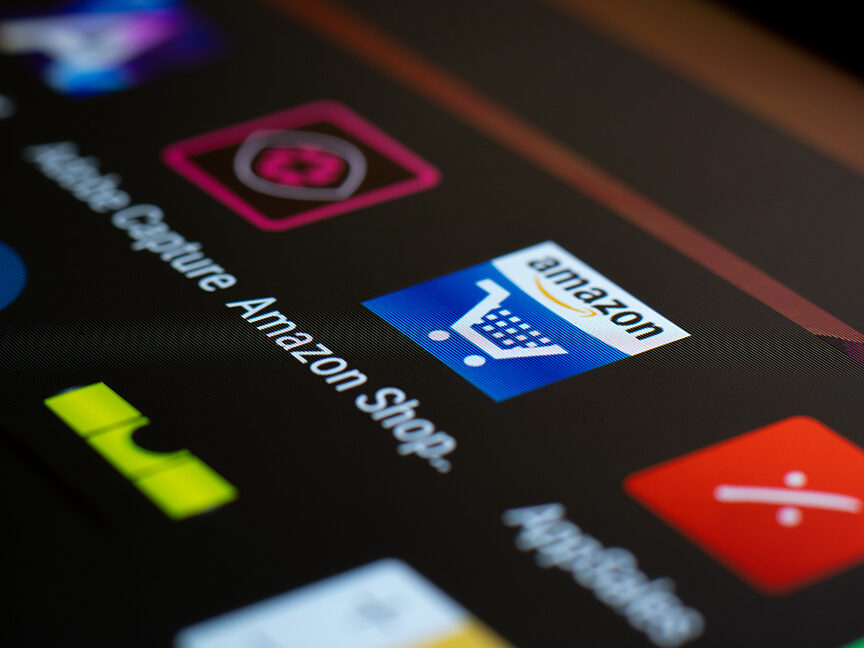
Congress has Big Tech in its sights.
On January 20, the Senate Judiciary Committee, in a rare show of bipartisanship, overwhelmingly approved a bill to prevent big tech platforms from showing favoritism to their own products over those of competitors.
Among the targets of the American Innovation and Choice Online Act are Apple Inc., Google’s parent Alphabet Inc. and, most notably, e-commerce behemoth Amazon.com. Inc. (Before the committee’s approval, the bill was amended to include foreign-based e-commerce sellers such as China’s ByteDance Ltd., owner of TikTok.)
If it becomes law, the measure would prohibit the tech giants from ranking their products higher on their mobile app stores than merchandise offered by third-party sellers.
“As dominant digital platforms — some of the biggest companies our world has ever seen — increasingly give preference to their own products and services, we must put policies in place to ensure small businesses and entrepreneurs still have the opportunity to succeed in the digital marketplace,” co-sponsor Sen. Amy Klobuchar (D-MN) said in a statement. “This bill will do just that, while also providing consumers with the benefit of greater choice online.”
At a time when the two major political parties can agree on virtually nothing, the committee’s action shows extraordinary support for curbing the market power of Amazon and other dominant players in e-commerce.
“It’s often said that if there’s one thing that can bring Republicans and Democrats together, it’s a common enemy,” says Jason Boyce, founder and chief executive officer of Avenue7Media, a service supporting independent sellers on Amazon.com. “Right now, the common enemy is Big Tech.”
The bill still must be approved by the full Senate, then reconciled with a similar version in the House of Representatives, but Boyce is nevertheless confident that it will end up on President Biden’s desk.
When it comes to Amazon, Google, Apple and Facebook, “there’s no question that all … of these companies have gained enormous, outsized power that’s suppressing competition, especially on the Amazon platform,” Boyce argues.
He believes that Amazon’s dominance is, if anything, understated. As a public company, Amazon only reports to the U.S. Securities and Exchange Commission the revenues from its cut of third-party sales — say, $15 out of a $100 item. But the actual retail value of goods sold on the Amazon platform is far greater than that — in all, a reported $610 billion between June of 2020 and June of 2021. By contrast, retail giant Walmart posted sales during that period of around $566 billion.
The gap is even wider when comparing the two merchandisers’ e-commerce activity. In 2021, Amazon captured around 40.4% of the market for goods sold online in the U.S. (Boyce believes the actual number is as high as 55%.) Walmart was a distant second with just 7.1%.
“Amazon is bigger than the next 10 [online] retailers combined,” Boyce says. “It’s a no-brainer case that Amazon is a monopoly.”
The Senate committee’s action is far from the first time that legislators have attempted to weaken the power of tech companies that are accused of having achieved market domination. What’s protected Amazon in the past, Boyce says, is a precedent developed in the 1980s requiring proof of harm to consumers in order to establish a monopoly. And because Amazon is often viewed as offering the lowest prices for online merchandise, it hasn’t been subjected to that standard.
But Boyce believes Amazon’s behavior does indeed harm consumers. “Amazon is actually inflating prices on the entire internet of products,” he charges, citing a 2017 Yale Law Journal article by antitrust lawyer (and now Federal Trade Commission chair) Lina M. Khan. “Companies may exploit their market power in a host of competition-distorting ways that do not directly lead to short-term price and output effects,” Khan wrote at the time.
With its cloud services, marketplace for third-party sellers and Fulfillment by Amazon offering, Amazon is less of a retailer and more a B2B company these days, Boyce argues. “With 8 million sellers worldwide, [including] 1.2 million in the U.S. with an active listing, that is a huge customer base,” he says, claiming that Amazon has progressively imposed higher fees on those customers that jeopardize their profitability.
Boyce further alleges that Amazon de-emphasizes listings for third-party sellers who offer their products on other platforms for less than on Amazon, a practice known as buy box suppression. And it frequently offers its own version of third-party products under a variety of house brands at a lower price, he charges. (That practice was, of course, pioneered by big-box retailers such as Walmart and Target.)
In a public statement opposing the American Innovation and Choice Online Act, Brian Huseman, Amazon’s vice president of public policy, argued that the bill will result in “collateral damage” to small businesses and their customers.
“As drafted, the bill’s vague prohibitions and unreasonable financial penalties — up to 15% of U.S. revenue, not income — would jeopardize our ability to allow small businesses to sell on Amazon,” Huseman said. “The bill would also make it difficult for us to guarantee one or two-day shipping for those small businesses' products — key benefits of Amazon Prime for sellers and customers alike. The bill’s authors are targeting common retail practices and, troublingly, appear to single out Amazon while giving preferential treatment to other large retailers that engage in the same practices.” He urged the Senate Judiciary Committee to “refuse to rush through an ambiguously worded bill with significant unintended consequences."
Boyce expresses hope that even a watered-down version of the bill, should that occur, will give the FTC greater power to regulate alleged monopolies such as those of Amazon, Google, Facebook and other tech giants. Such entities, he says, “are blotting out the sun.”







